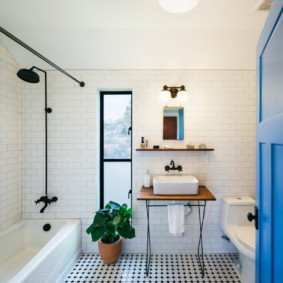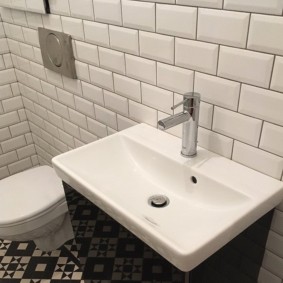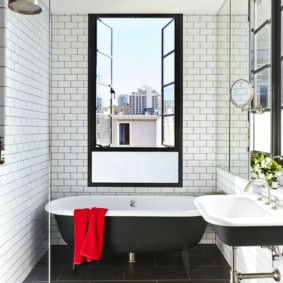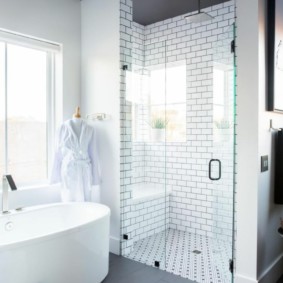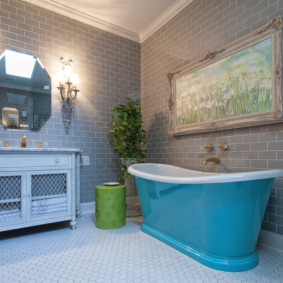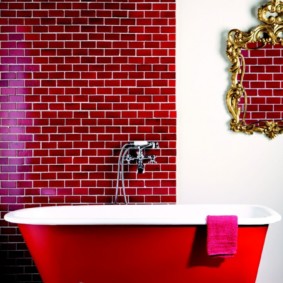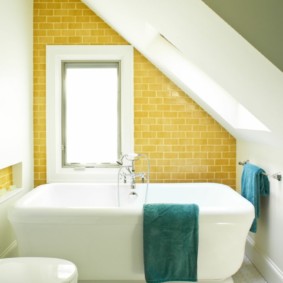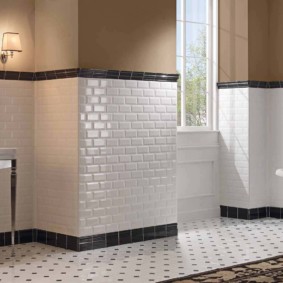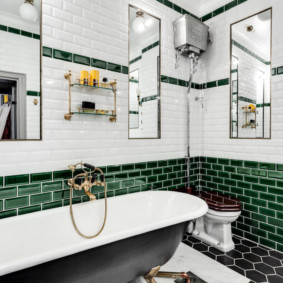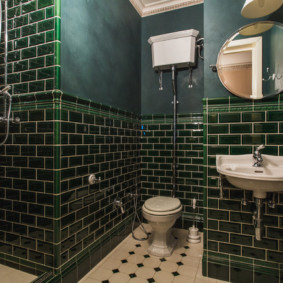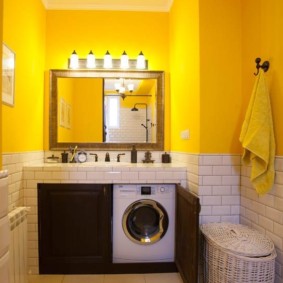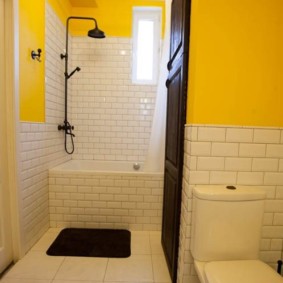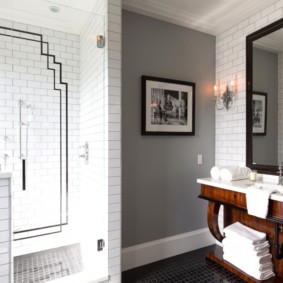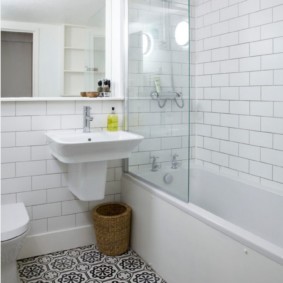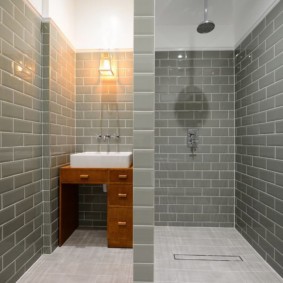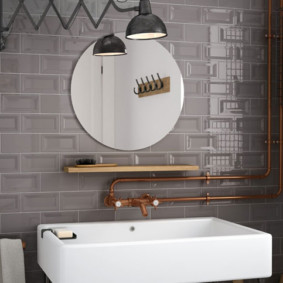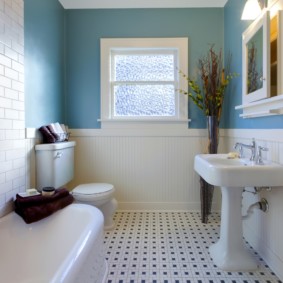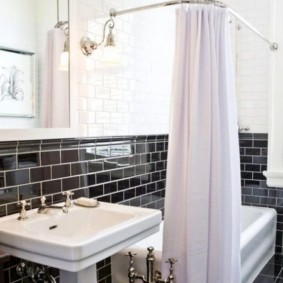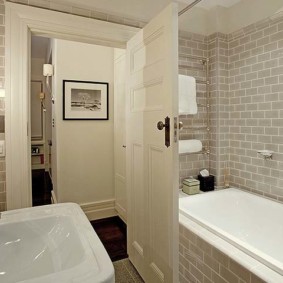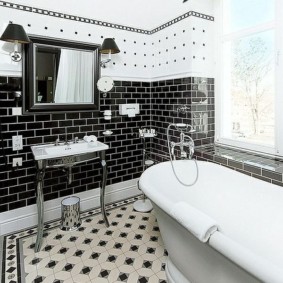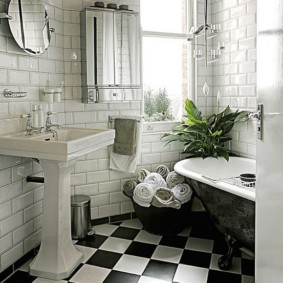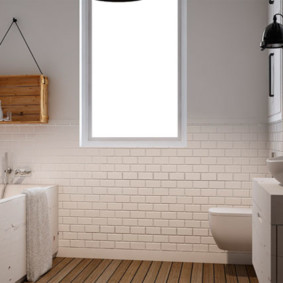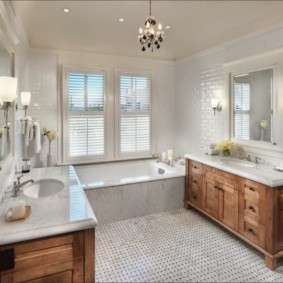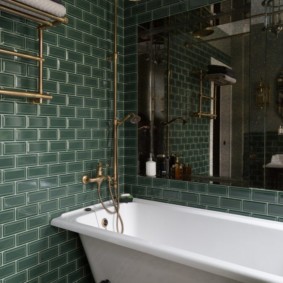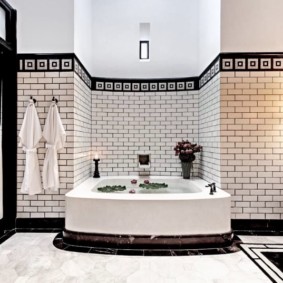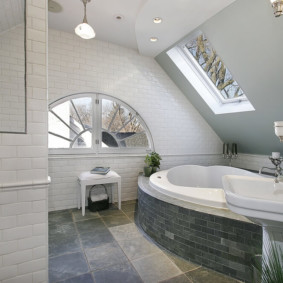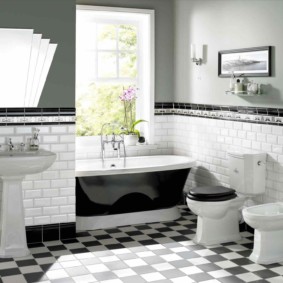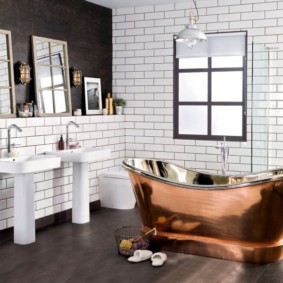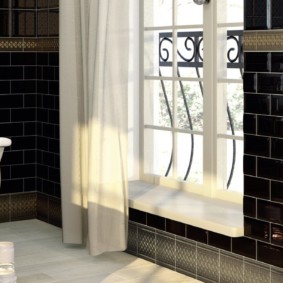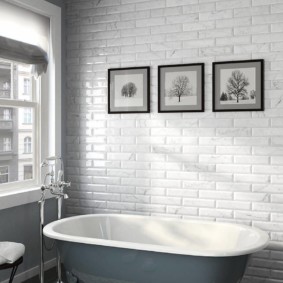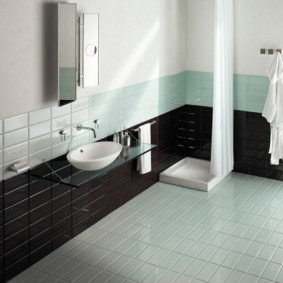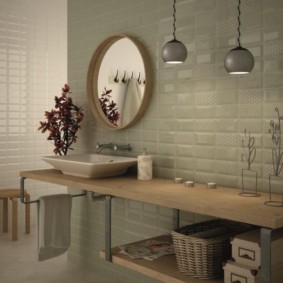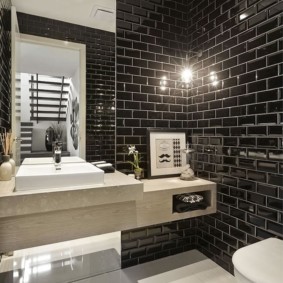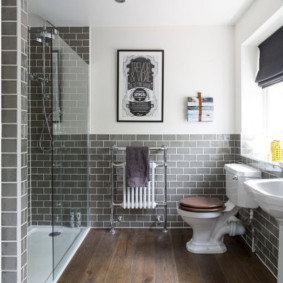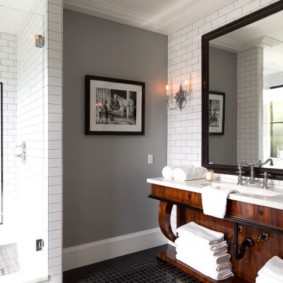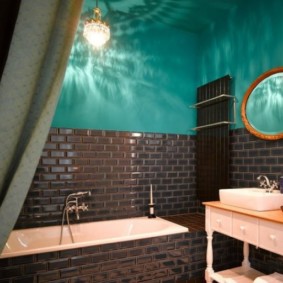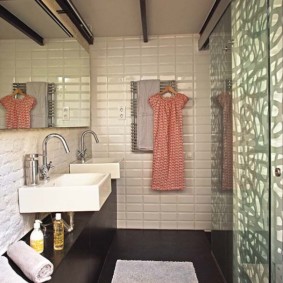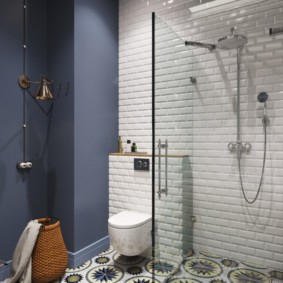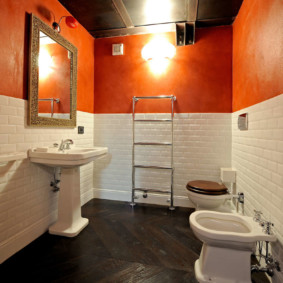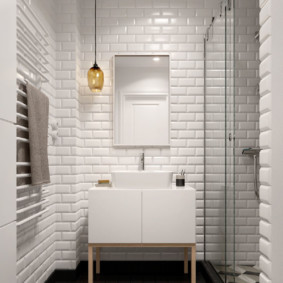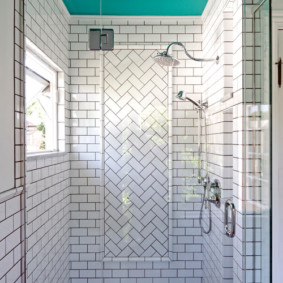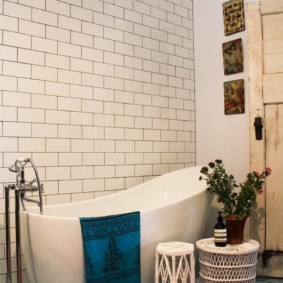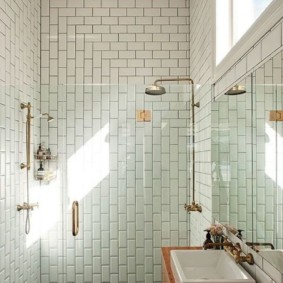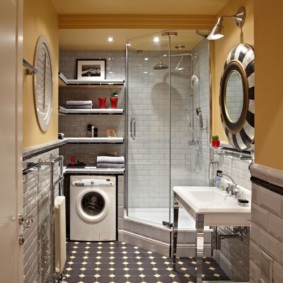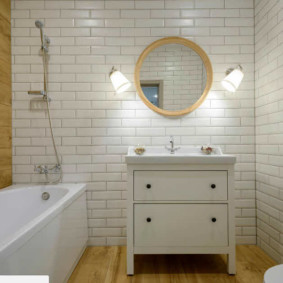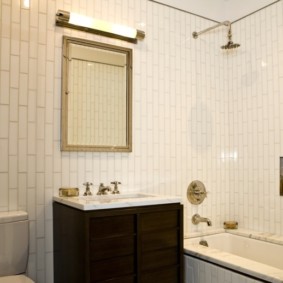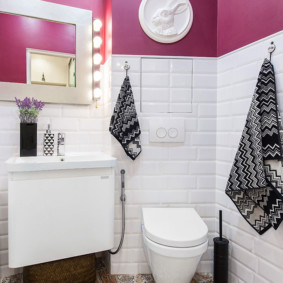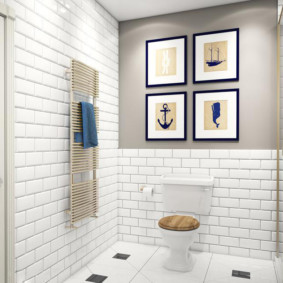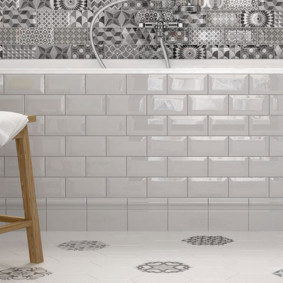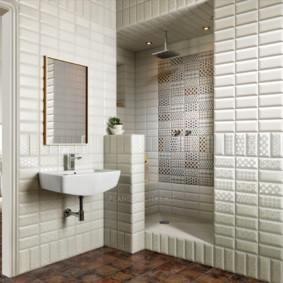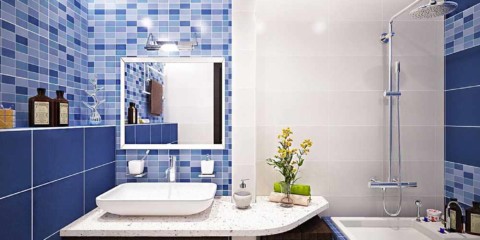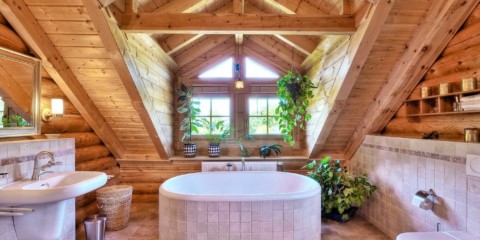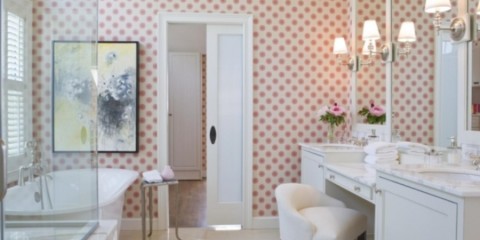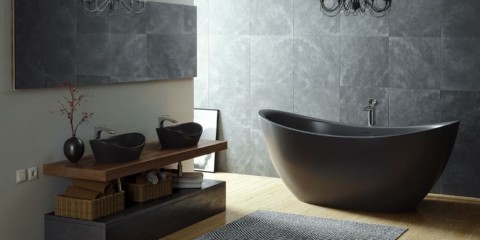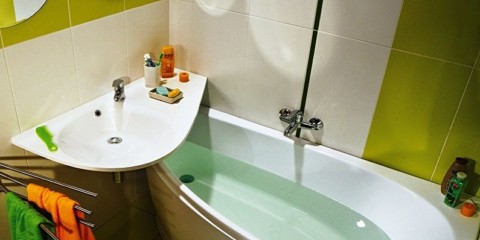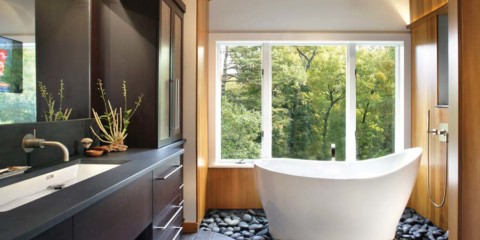 A bathroom
What could be the design of the bathroom, if it has a window
A bathroom
What could be the design of the bathroom, if it has a window
Choosing materials for decorating the bathroom, you can get lost from a large selection of different solutions. Most often, a tile is used for the bathroom, but it also has many varieties. One of them is called a “wild boar”. Tile boar in the bathroom - a great solution. In this article you can find out what it is, how to choose this kind of tile and for which interior it is suitable.
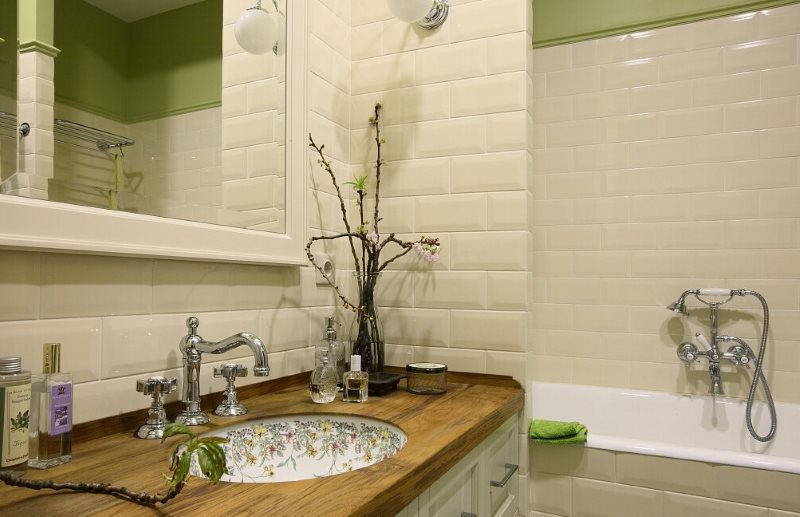
The “boar” tile is considered universal and is suitable for decorating bathrooms in various styles.
Features and Benefits of Tiles
Content
Tiles of the “boar” type have several obvious advantages, thanks to which it differs from any other varieties of decoration.
- Increased resistance to moisture and temperature extremes. Regardless of the humidity level or temperature conditions, the tile will retain its properties and appearance for a long time.
- Environmental friendliness. This type of tile is made from natural materials.
- Easy to care. This finish is easy to clean; it is not afraid of even aggressive cleaning products.
- Reliability. This variety has a very long life.
- A great solution for finishing uneven or rough surfaces.
- Large selection of colors. This allows you to realize any design idea.
- Excellent combination with other types of finishing materials.
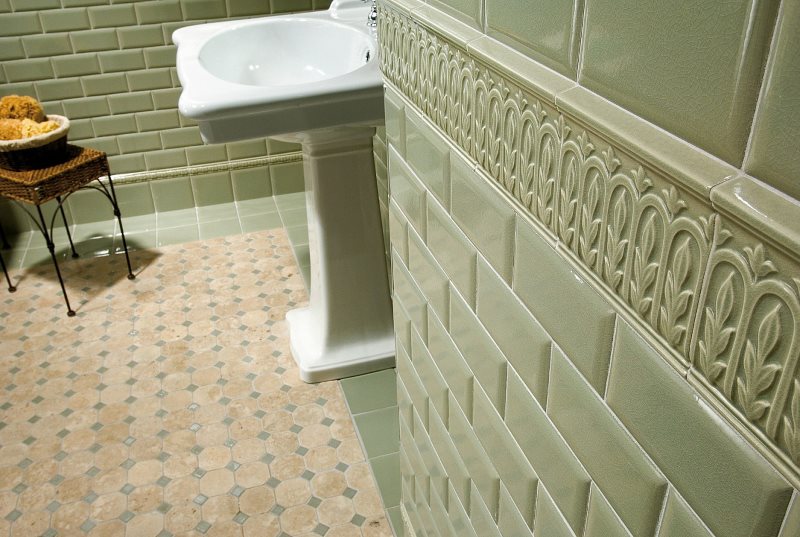
The wall surface lined with a glossy “boar” with decorative stitches looks stylish and original.
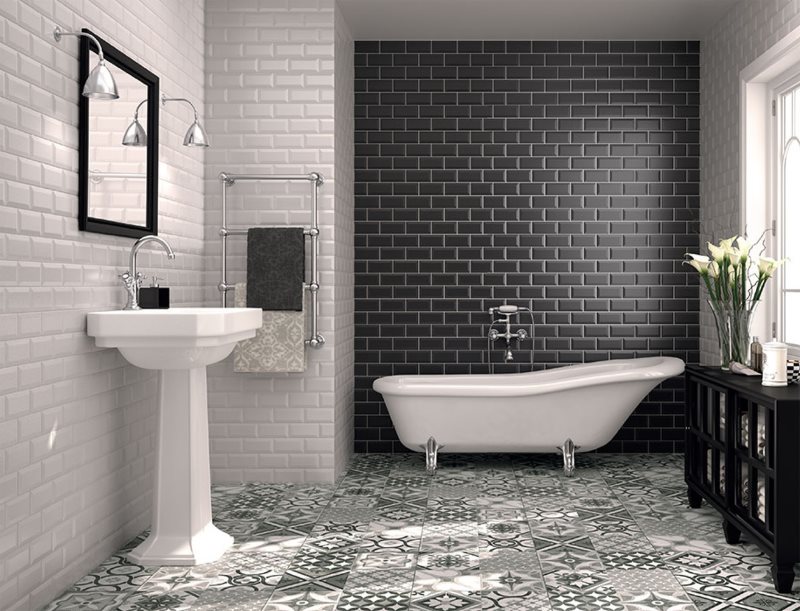
Tile “hog” can be used to decorate the entire room of the bathroom or only to highlight the necessary accents
What is this hog tile and why is it called
This unusual name of the material is due to the presence of 2 holes from the end of the tile. These holes are covered with ingot glaze, and due to this, the finish resembles a boar piglet. This was the reason for the appearance of such a name.
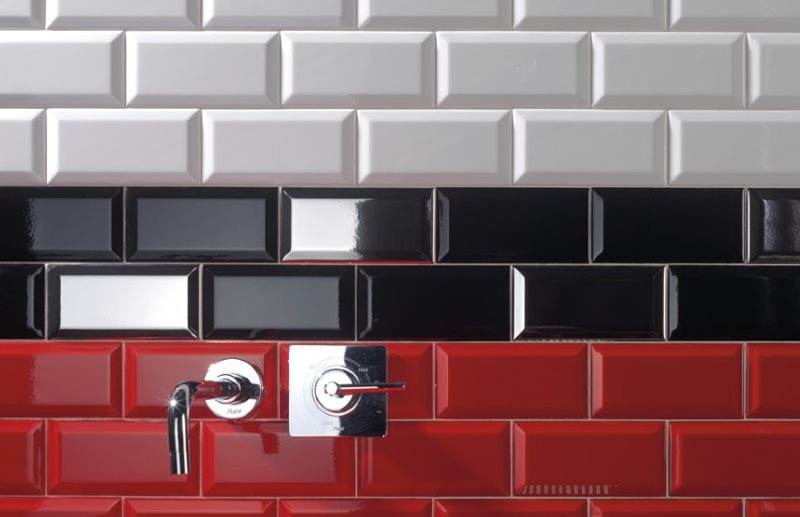
Today, “wild boar” is called monophonic elongated tile, close to the size of a brick
Due to the fact that the tile has the shape of a rectangle, it can be used to simulate brickwork. The volume of the tile visually seems larger and more textured due to the slightly beveled end facet. There are models without such an edge, and contrasting grout is responsible for the texture in this case.
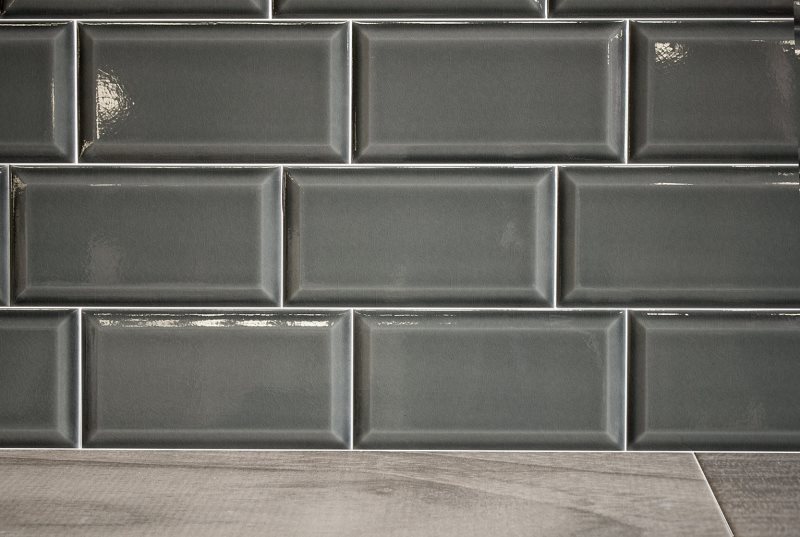
Chamfered chamfers give the ceramic surface a more lively and original look.
Selection tips
The most important parameter when choosing finishing materials is the size of the room. As a rule, most bathrooms cannot boast not only large, but even medium sizes. If you select the wrong material, there is a risk of visually making the space even smaller. To avoid this, choosing a tile, you need to take into account the advice of professionals.
- For small rooms, it is optimal to use a small-sized tile: this will help visually make the space larger. Large tiles should not be used, it is better to leave it for laying in more spacious rooms.
- If the tile is laid vertically, then visually the room becomes higher, the same with horizontal masonry - the room will visually appear wider. In small spaces, the diagonal stacking method can also be used.
- In small rooms it is better to pick up light colors, it can be several matching shades.
- Large prints, murals, large patterns - all this is suitable only for spacious bathrooms.
- For a small bathroom, you can not use any drawings at all, or make a few small accents in the form of small drawings.
- Finishing with a mirror surface will visually increase the space. It can become the basis for an entire mirror wall or part thereof.
- It is not worth using dark or bright borders in a small bathroom as a decoration, you should also avoid dividing into a light upper part of the wall and the lower dark one.
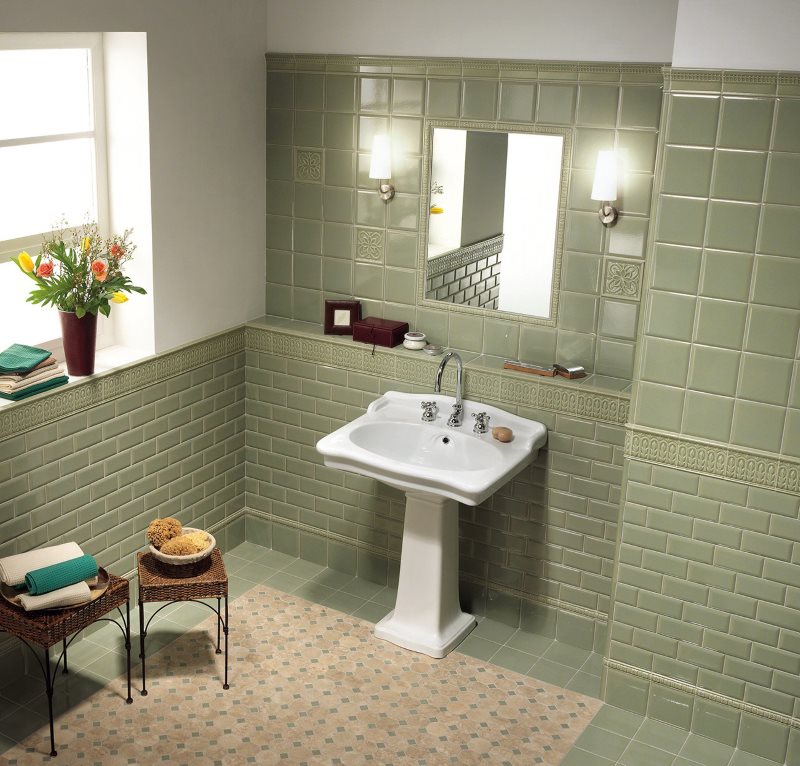
In large rooms, tiles are better laid out in the classical way with offset
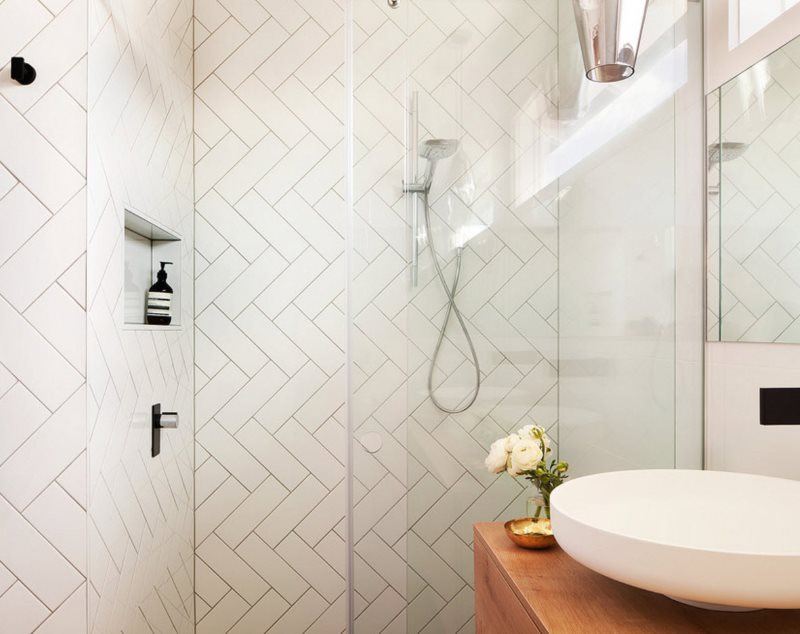
In a small bathroom, you can choose the diagonal styling of the “boar”
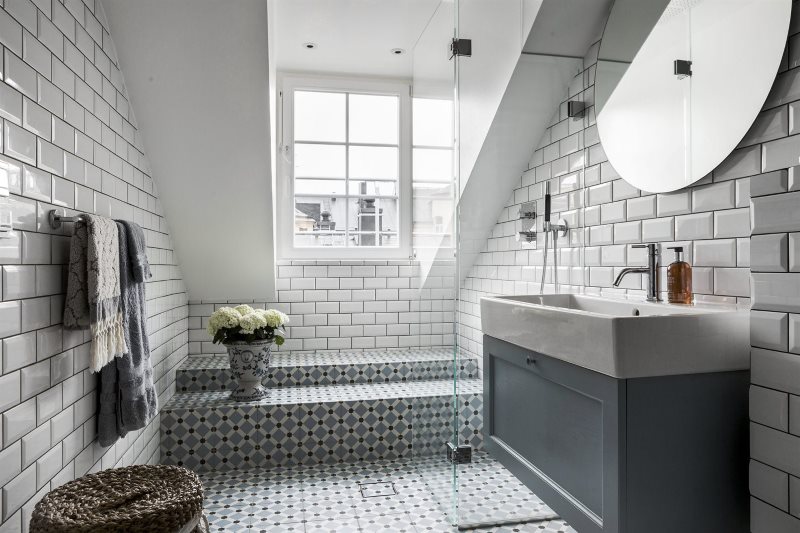
Glossy tiles visually enhance the bathroom
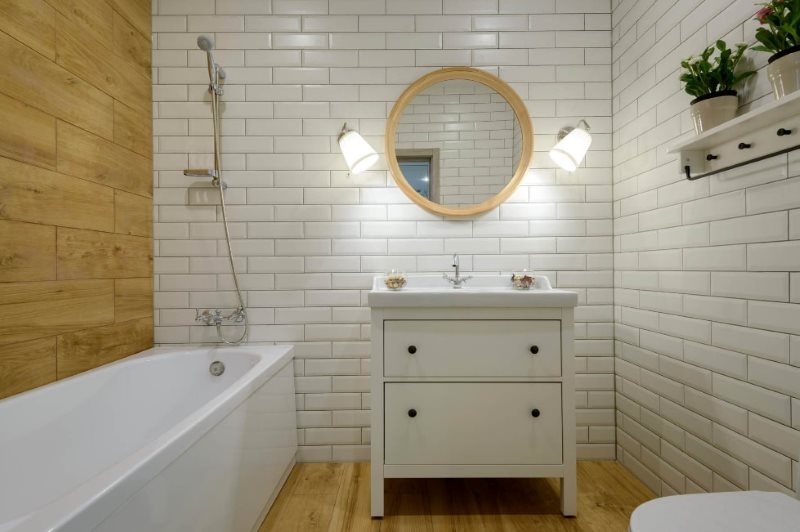
Matte tiles look more expensive and dignified
Required Requirements
Materials for finishing the bathroom need to be selected especially carefully, since they must meet certain requirements. Otherwise, there is a risk that the service life will be very short. Consider the necessary requirements.
- Moisture resistant. The tile should not absorb moisture, and there is a lot of moisture in the space of the bathroom. If the material absorbs moisture, then with increased humidity it will fail very quickly, mold and fungus will appear, and the appearance will not change for the better. Among other things, the tile can simply fall off due to the fact that it becomes heavy. To determine the level of moisture resistance, you need to look at the back of the tile: there should be almost no pores on it.
- Resistant to cleaning. For tidying in the bathroom, aggressive or chemical cleaners are almost always used. They will fall both on the tile and on the seams at the junction. Tiles that are not resistant to such substances will quickly lose their appearance.
- Flatness on all sides. To check this, you can look at a stack of folded tiles: if the distance differs by at least a millimeter, this is a bad indicator. Laying such a tile will be problematic, the seams will be uneven.
- No damage. Chips and cracks should not be, the picture should be distributed evenly. If the pattern on one tile differs in color or size, it is most likely a marriage. It is better not to purchase such material. It is also important to pay attention to the fact that there are no irregularities, and the color is high-quality and deep.
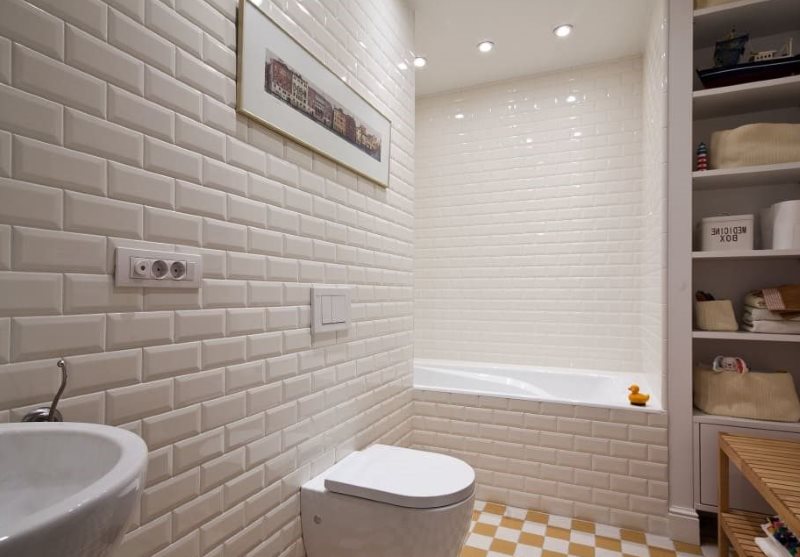
Tiles produced in modern times can be with a different texture - smooth, matte, aged or mirror
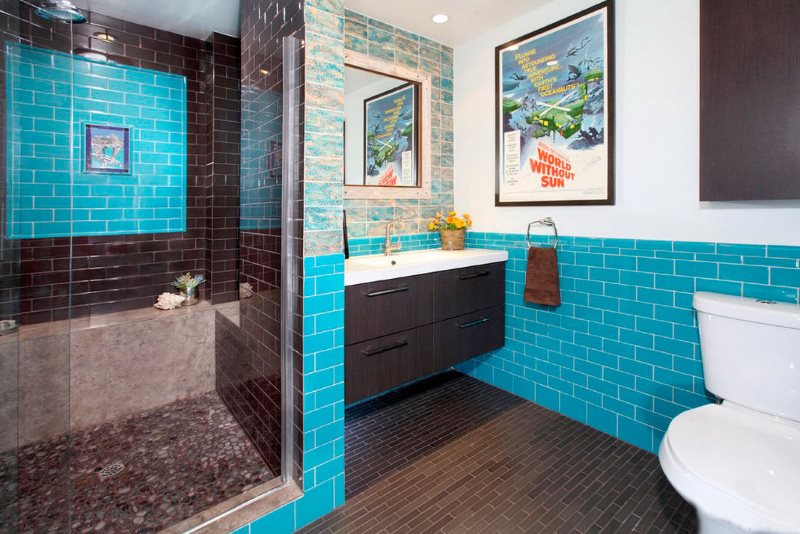
Proper selection of colors of ceramic tiles allows you to get an original interior
Popular colors
Consider the most popular colors of the boar tile.
- White. This color can be called universal, because it will look great in both a small and a large bathroom. Also, the color goes well with other shades.
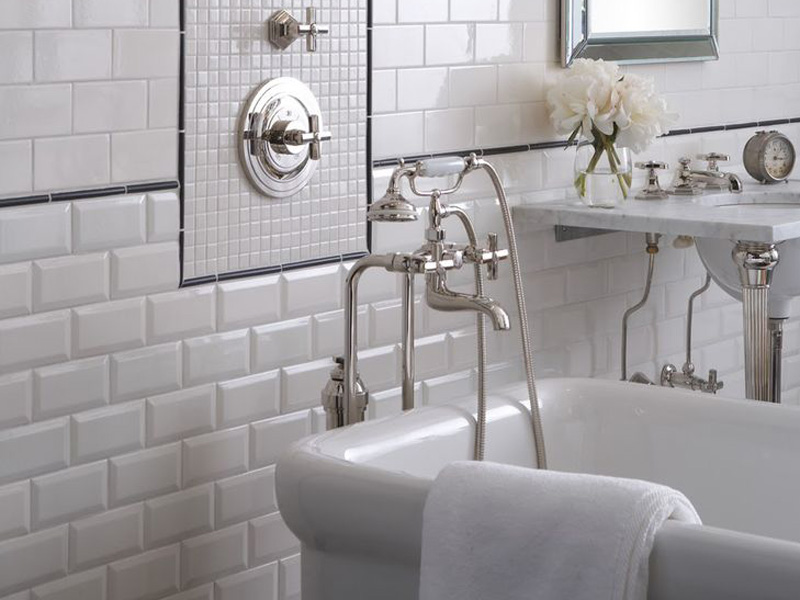
White “wild boar” goes well with monochrome and shiny objects
- The black. It looks stylish and original, but is suitable only for large spaces. Better to combine with light shades.
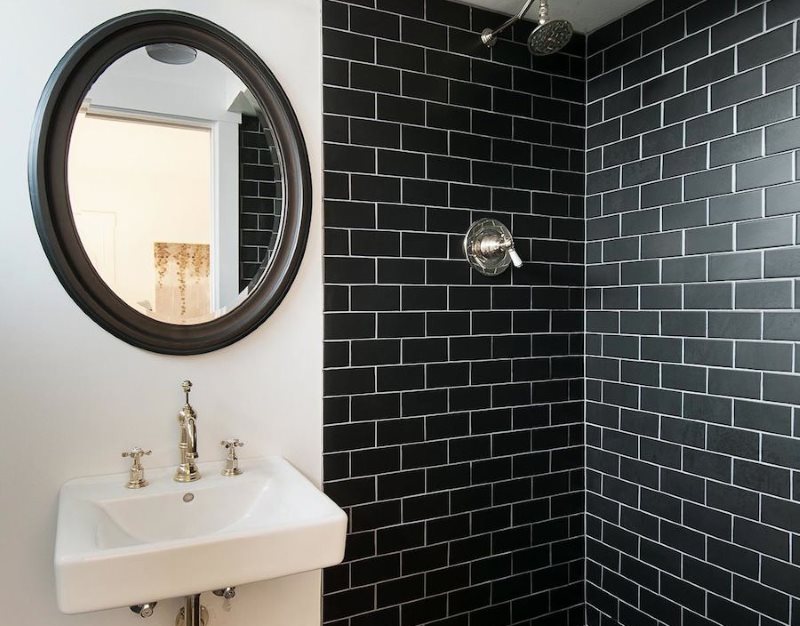
The black “wild boar” laid out with an offset looks good paired with a white grout
- Blue. This bathtub looks fresh and full of lightness. You can combine with turquoise, white, gray or blue tiles.
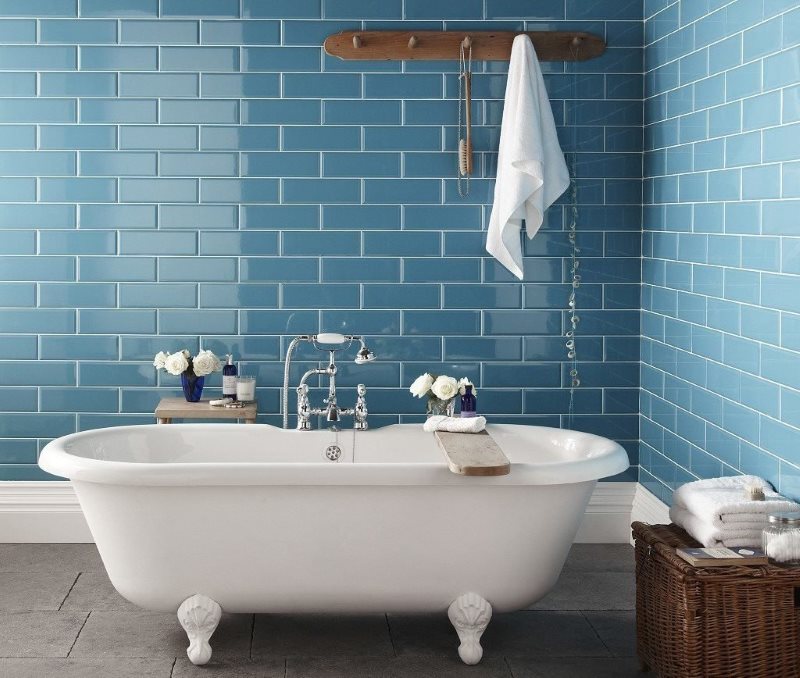
Blue tile is suitable for decorating a bathroom wall in Provence style
- Red. This color should not be predominant, as it is very bright and aggressive.
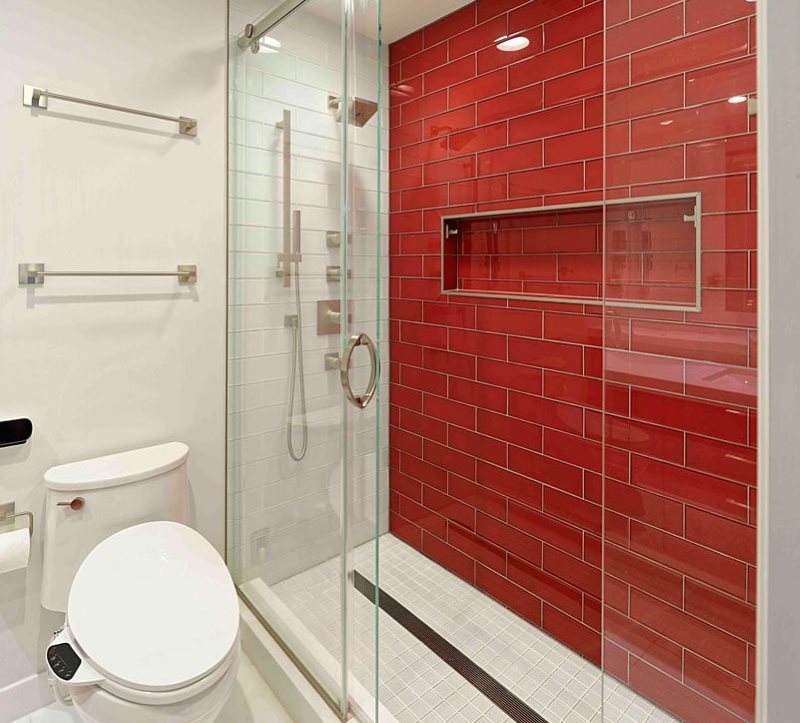
Bright red tiles will look bold in a modern style bathroom
- Yellow. It is better to choose muted tones and combine with white, brown, and green.
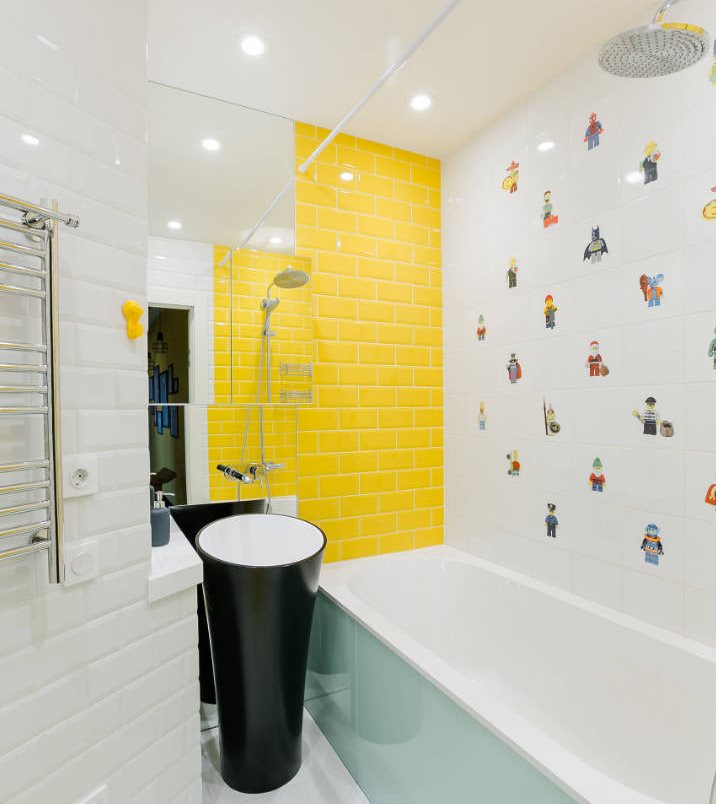
Yellow ceramics can be used to highlight an accent wall
- Green. This color should be chosen for cladding small areas, or its muted shades.
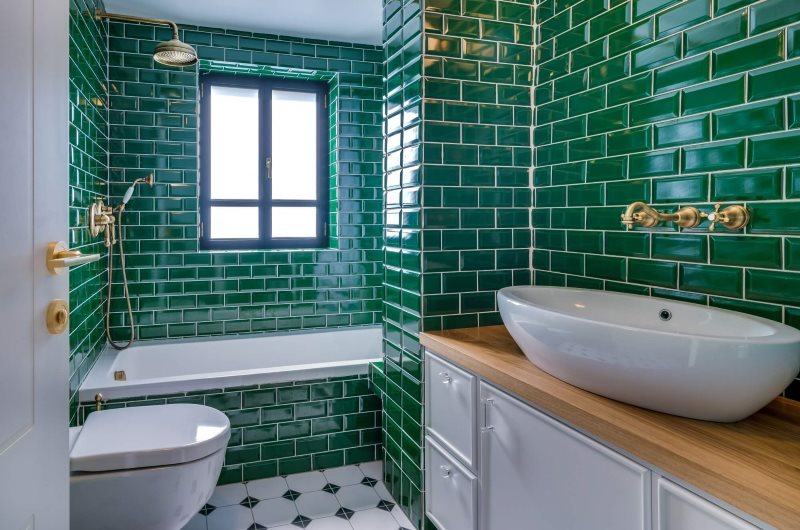
Green tiles, like other dark colors, can be used in rooms with good natural light.
Tile block sizes
The range of tiles "boar" is very diverse, including the size range. However, despite a large number of different sizes, the most popular options are 7.5 * 15 cm, 10 * 20 cm, matte and semi-matt options. Particularly popular models that imitate wood, glass, marble or natural stone.
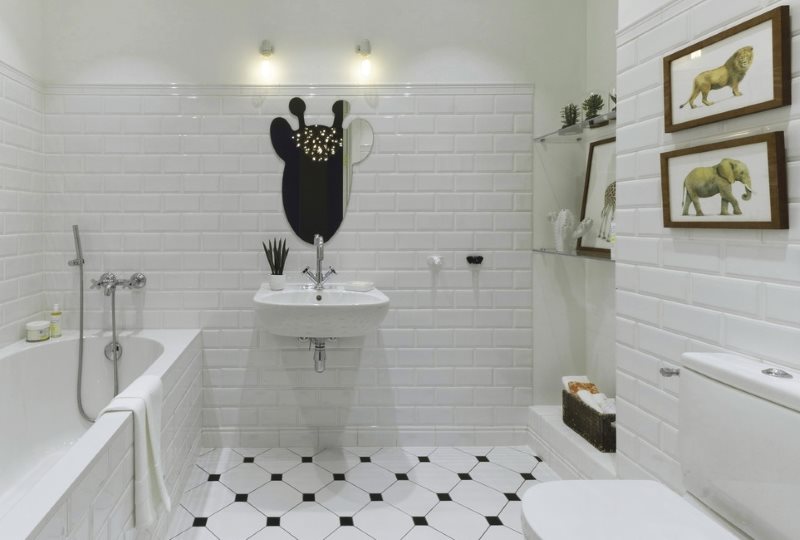
The dimensions of the ceramic tiles are selected taking into account the dimensions of the bathroom - small bricks are better suited for a small room, and in a spacious bathroom you can put a standard or large “boar”
What style of interior is suitable
The “boar” tile is universal and will look good in almost any design, but it will be most suitable for the styles listed below.
- Art Deco. A style in which order, strict lines and geometricity are important. For this reason, imitation of bricks is optimal here. Most often, the choice falls on a white or black tile, but shades of gray are also allowed. In such an interior, boar and stucco tiles will blend well.
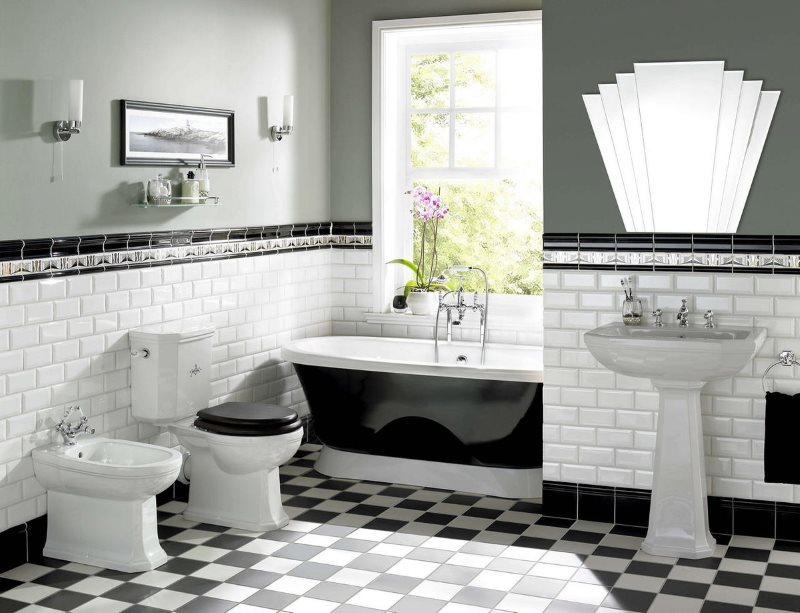
The lower part of the wall lined with “boar” made the bathroom lighter and more spacious
- Loft. Urbanism combined with industry. In such an interior, brickwork is also welcomed, the materials for which should be matte. To add roughness to the appearance, you can use a contrasting grout of red color or combine a boar with dark tiles.
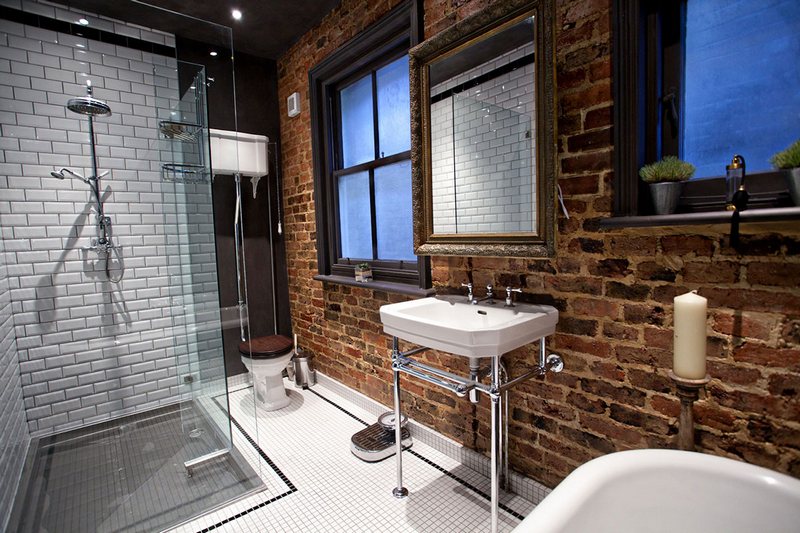
Most of the walls of the bathroom are decorated with brick in the spirit of a loft, and the shower cubicle is lined with a “boar” - the part that is most exposed to water
- Scandinavian style. This style has similarities with the two previous ones. Here, too, there is a place for rough textures, and brickwork will also be appropriate here.
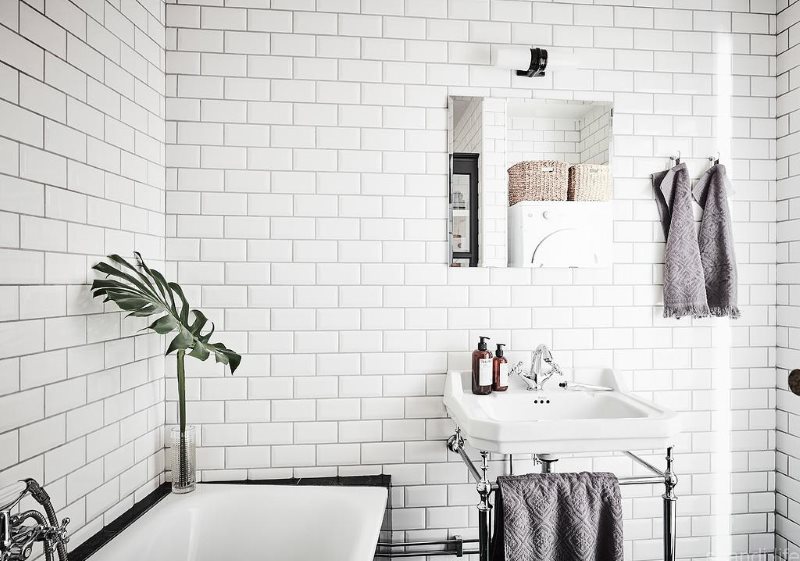
When lining the walls in a Scandinavian-style bathroom, you should stick to a “brick” print
- Classic. In such an interior, materials suitable for imitating wood or marble are often used. Tile boar is well suited for this purpose.
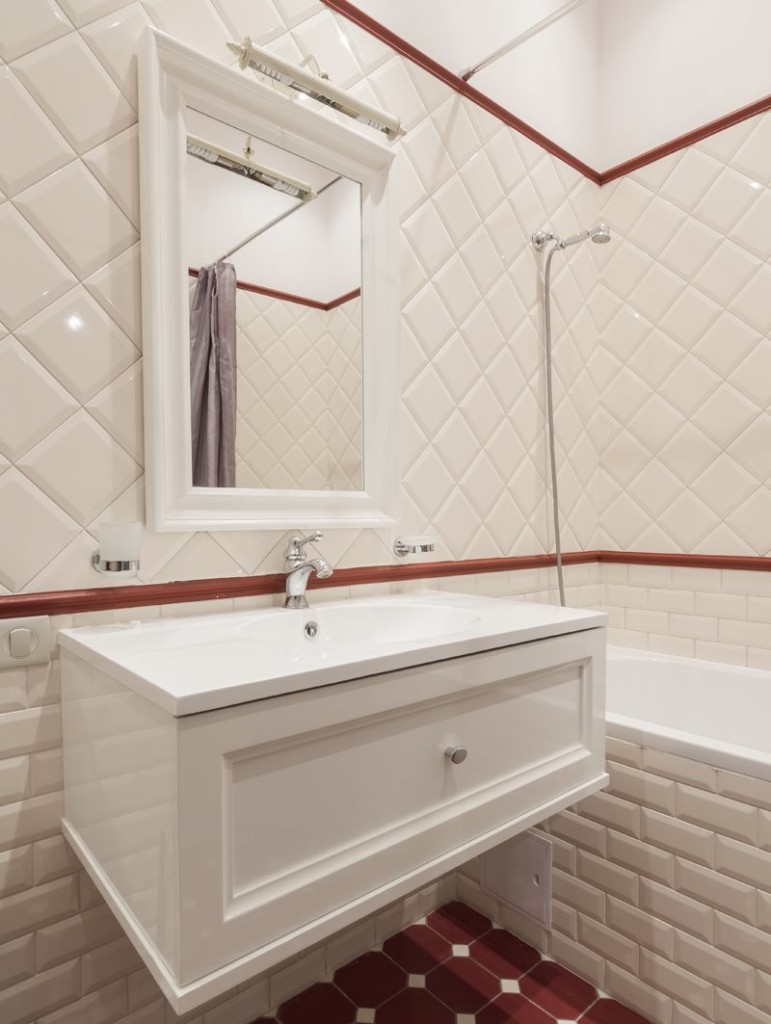
A successful combination of sizes and installation options for ceramic tiles in a classic-style bathroom
Conclusion
Tile “hog” is a great option for the bathroom and toilet, as it does not limit the owners of the apartment in choosing a stylistic direction. To operate the material without hassle, you need to choose a tile in accordance with the recommendations from this article.
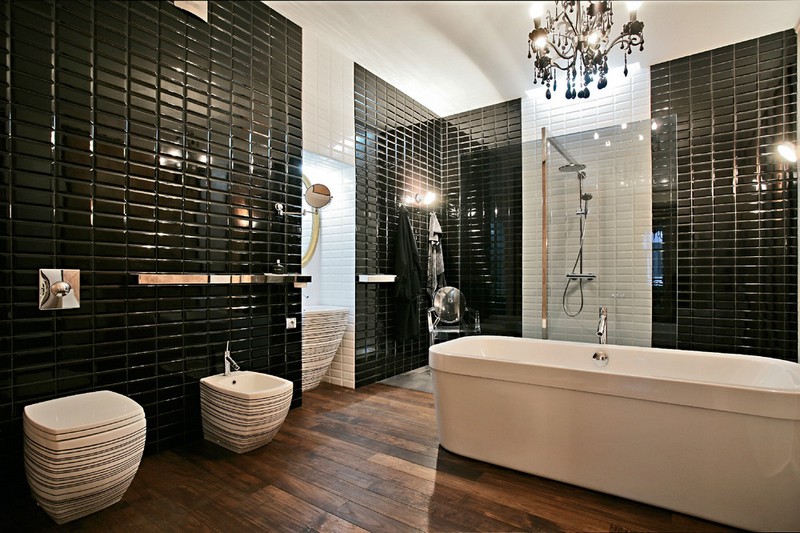
The production of tiles "boar" engaged in both domestic and foreign manufacturers
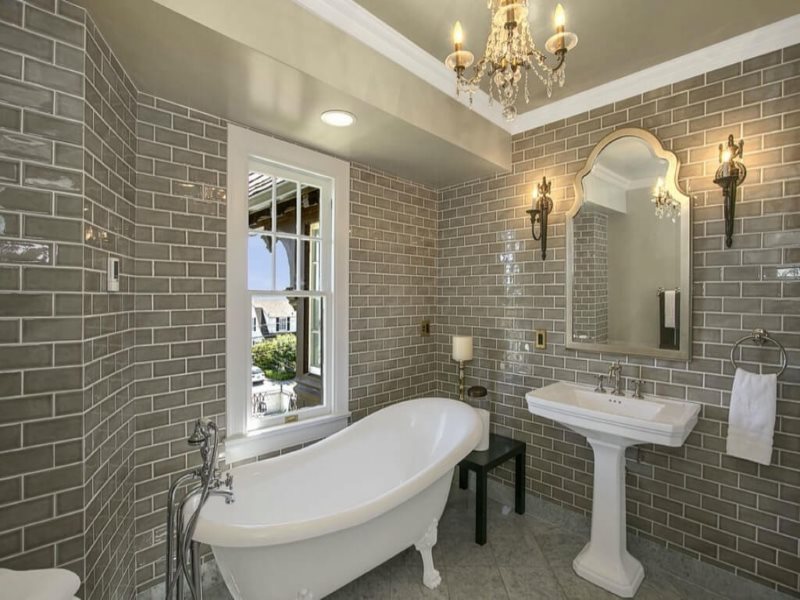
Russian-made tile is cheaper, and its quality is often not inferior to import options
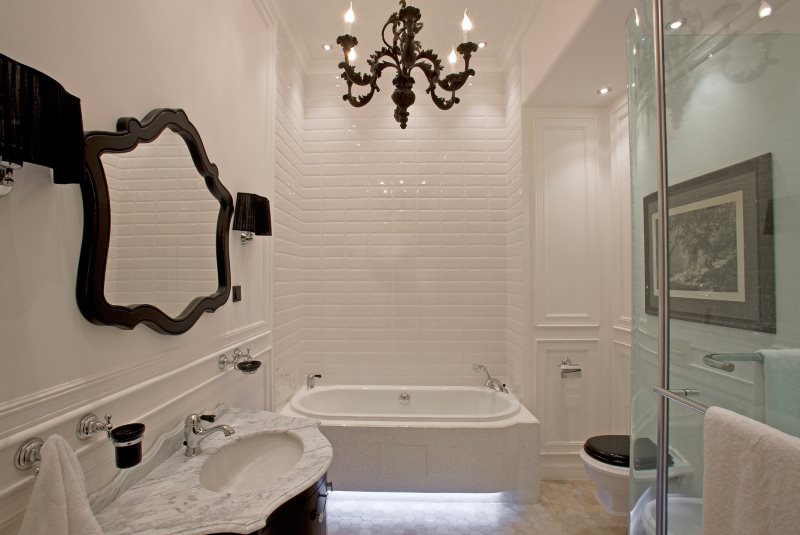
Before purchasing tiles, be sure to check with the seller if the material is suitable for use in the bathroom
Video: tile “boar” in the interior
Boar in the bathroom - 50 interior options
You can see the options for laying boar tiles in the bathroom in the photo.
